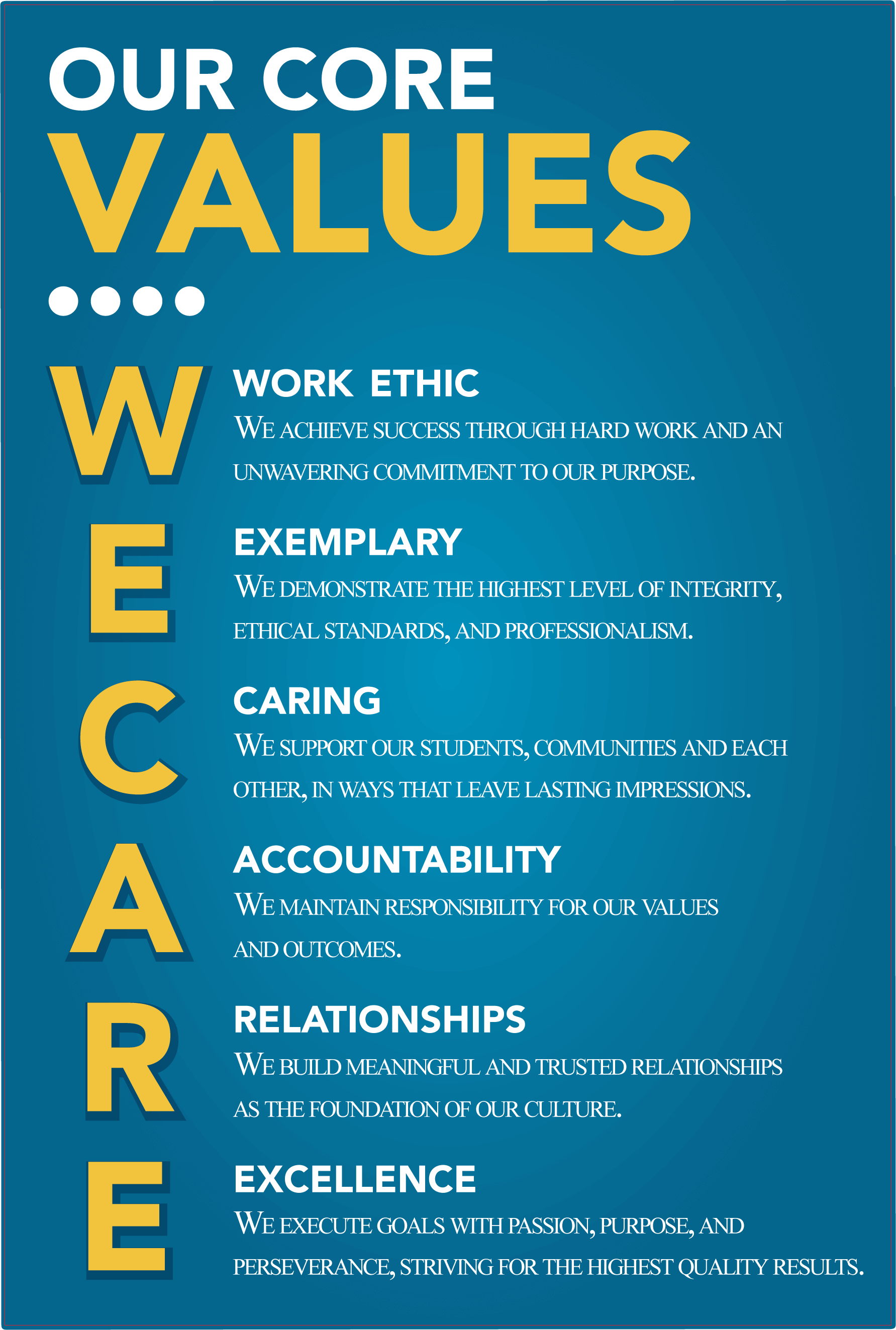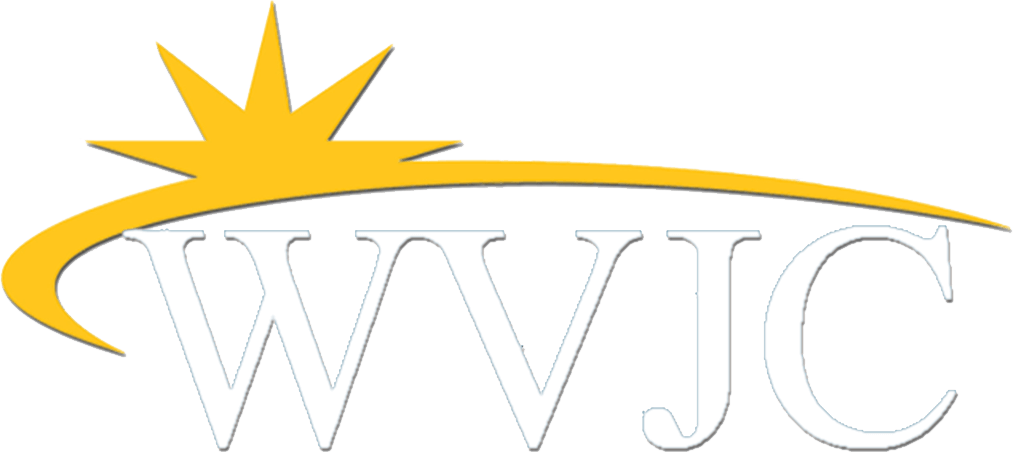Download our free 22-page guide!
This guide is designed for those interested in starting a career as a Practical Nurse, including information about West Virginia Junior College’s Practical Nursing Diploma program. This guide also includes detailed information about required testing, healthcare careers in West Virginia, and frequently asked questions about becoming a Practical Nurse.
Download your free guide today!
About West Virginia Junior College
West Virginia Junior College (WVJC) has a history dating back to 1892 when the first campus was established in Charleston, West Virginia. Since then, WVJC has expanded program offerings by opening campus locations in Morgantown and Bridgeport, West Virginia.
In 2011, WVJC developed an online option, WVJC Online, to provide students in West Virginia and surrounding states with accelerated career training programs.
WVJC’s mission is to provide students with career training taught by experienced faculty who uphold our core values and purpose. By developing an education process that puts student needs first, WVJC students can form a relationship with the institution that allows them to develop professionally and personally.
By offering each student personalized support, WVJC integrates its core values: Work Ethic, Exemplary, Caring, Accountability, Relationships, and Excellence (WE CARE). As a result, every person within the organization is held to these fundamental values, allowing WVJC to fulfill its purpose of empowering change by creating opportunity.


What you can expect to learn
- The Nursing Shortage in West Virginia
- Test of Essential Academic Skills (TEAS) Exam
- National Council Licensure Examination for Practical Nursing (NCLEX-PN)*
- Accreditation and Licensing
- Practical Nursing Courses at WVJC
- WVJC’s Process
- Healthcare Career Opportunities in West Virginia
- WVJC Pathway Options
- Differences Between LPN and RN
- Applying a Practical Nursing Diploma
- The Benefits of WVJC’s Practical Nursing Program
- Frequently Asked Questions
The Nursing Shortage in West Virginia
The need for nurses across the country is at an all-time high, according to The American Nurses Association. Nationwide nursing shortages result from multiple factors, including the lasting impact of the COVID-19 pandemic and the baby boomer generation’s retirement.
The COVID-19 pandemic has shifted the role of healthcare workers to the frontline of defense against the virus, and the need for qualified professionals to meet the demand has rapidly increased. Unfortunately, due to intensified patient care needs and workforce shortages, many nurses currently working in the field have begun to experience prolonged periods of stress, which can lead to feelings of burnout. In a study by McKinsey & Company, 22% of nurses considered leaving their positions in the field due to feeling burnt out.
Another factor impacting the nursing industry is the aging population of nurses working in the field and patients. As current nurses age and begin to retire, the need for new nurses to fill their positions will rise. It is estimated that the average age of Licensed Practical Nurses currently working is over 50 years old, with more than one-fifth of LPNs having plans to retire in the next five years. Likewise, as the Baby Boomer Generation ages and requires more medical care, the demand for nurses to provide care will increase.
The need for qualified nurses in rural areas of West Virginia is in high demand due to a large gap between residents requiring healthcare services and qualified nurses that provide them. In a study conducted by the West Virginia Center for Nursing, between 2016 and 2026, the demand for qualified nurses was and will continue to be high for 32 West Virginia counties. The remaining 18 counties have a moderate demand level, making the need for nurses a statewide issue.
By offering a Diploma in Practical Nursing in just twelve months, West Virginia Junior College Bridgeport is continuously helping to fight the nursing shortage by allowing our students to gain the necessary skills and knowledge to begin their careers quickly.
Test of Essential Academic Skills (TEAS) Exam
The first step toward entering school to become a practical nurse is taking the Test of Essential Academic Skills (TEAS) exam. Most institutions require this standardized test for admittance to a nursing program. The TEAS exam is designed by Assessment Technologies Institute (ATI) and evaluates a student’s readiness to enter a health science field.
Prospective students taking the TEAS exam are given three hours and twenty-nine minutes to complete a variety of 170 multiple-choice, ordered responses, fill-in-the-blank, multiple-select, or hot spot questions. The TEAS exam covers material across four subjects, Reading, Mathematics, Science, and English and Language Usage.
WVJC offers multiple resources for prospective students planning to take the TEAS exam, including online study guides and videos. There are also various online study groups for students preparing for the exam. For best results on the TEAS exam, ATI recommends preparing for the exam for at least six weeks before taking it.
National Council Licensure Examination for Practical Nursing (NCLEX-PN)*
The National Council Licensure Examination for Practical Nursing (NCLEX-PN)* exam is the industry-standard test that reflects a nurse’s ability to work as a practical nurse in the field safely and competently. The exam tests a nurse’s competency, including a Safe and Effective Care Environment, Health Promotion And Maintenance, Psychosocial Integrity, and Physiological Integrity. As the nursing industry evolves, the NCSBN Board of Directors reevaluates the exam every three years to ensure that it tests the most accurate practice.
The NCLEX exam requires future nurses to apply critical thinking and decision-making skills combined with their learned nursing knowledge to answer situation-based questions. Candidates taking the exam are allotted five hours to answer a minimum of 75 questions and a maximum of 145 questions in the four categories mentioned above to prove their competency.
The NCLEX exam uses computerized adaptive testing (CAT) to administer the exam. Using CAT, the computer is able to evaluate each candidate on their ability to answer questions accurately. As the computer analyzes the previous questions, it continuously displays questions that the candidate should have a 50% chance of answering correctly. This allows each exam to be individualized to determine the candidate’s true ability.
The exam is graded on a pass-or-fail basis, and the results are determined by one of the following three rules:
1.The 95% Confidence Interval Rule– This ruling occurs when the computer is 95% sure that the candidate is above or below the passing standard.
2. The Maximum-Length Exam Rule– This ruling occurs when the candidate’s ability is extremely close to the passing standard. The computer cannot determine with 95% certainty that the candidate is above or below the standard. The computer will then continue to display questions until the maximum number of questions has been reached.
3. The Run-Out-Of-Time Rule– This ruling occurs when the candidate runs out of time before reaching the maximum number of questions, and the computer is not 95% certain whether or not they are above or below the passing standard. The candidate will then be scored on the questions answered to determine whether the result is a pass or a fail.
Annually, West Virginia Junior College Bridgeport reports licensure rates for programs where certification, licensure, or registration is based upon an industry-recognized examination required to become employed in West Virginia. This data is reported by the institution’s accrediting body, the Accrediting Bureau of Health Education Schools (ABHES) Annual Report. In the most recent report, WVJC Bridgeport has a 100% NCLEX-PN Licensure exam pass rate.
*Passing the NCLEX-PN exam is required to become a Practical Nurse.
Accreditation and Licensing
West Virginia Junior College Bridgeport
ABHES – West Virginia Junior College is institutionally accredited by the Accrediting Bureau of Health Education Schools to award diplomas and associate’s degrees. The Accrediting Bureau of Health Education Schools contact information is 6116 Executive Blvd, Suite 730, North Bethesda, MD 20852, Phone (301) 291-7550.
CTCS – West Virginia Junior College Bridgeport campus is authorized to offer post-secondary education programs leading to a certificate, diploma, or associate degree in the state of West Virginia in accordance with its permit issued by the West Virginia Council for Community and Technical College Education, 1018 Kanawha Boulevard, East, Suite 700, Charleston, WV 25301, (304) 558-0265 in accordance with Chapter 18B of the West Virginia State Code.
West Virginia State Board of Examiners for Licensed Practical Nurses – The West Virginia Junior College Practical Nursing program has been granted full approval by the West Virginia State Board of Examiners for Licensed Practical Nurses. 101 Dee Drive, Suite 100, Charleston, WV 25311-1688, Phone (304) 558-3572.
West Virginia State Board of Examiners for Registered Professional Nurses – The West Virginia Junior College Nursing program in Bridgeport has been granted full approval by the West Virginia State Board of Examiners for Registered Professional Nurses. 5001 MacCorkle Avenue, SW, South Charleston, WV 25309, Phone (304) 744-0900. In addition, the West Virginia Board of Examiners for Registered Professional Nurses has granted provisional approval for the WVJC Parkersburg and Martinsburg hybrid online programs.
ACEN – Effective May 13, 2022, the Associate Degree Nursing Program at West Virginia Junior College at the West Virginia Junior College Campus located in Bridgeport, WV, is a candidate for initial accreditation by the Accreditation Commission for Education in Nursing. This candidacy status expires on May 13, 2024.
Accreditation Commission for Education in Nursing (ACEN)
3390 Peachtree Road, NE, Suite 1400
Atlanta, GA 30326
(404) 975-5000
View the public information disclosed by the ACEN regarding the candidate program at ACEN Candidates (acenursing.org)
NC-SARA – approved to participate in the National Council for State Authorization Reciprocity Agreements (NC-SARA). For the most current list of NC-SARA member states and to determine if your state is a member state, visit the NC-SARA website.
Practical Nursing Courses at West Virginia Junior College
Practical Nursing students at WVJC can expect to learn and utilize the nursing process to provide safe and effective patient care. By practicing sound nursing judgment, critical thinking, and patient care skills, students who complete WVJC’s Practical Nursing program will become well-versed healthcare professionals.
Students will complete classroom instruction and lab experiences in gerontological, medical, surgical, obstetric, and pediatric nursing. A complete list of classes practical nursing students can expect to take is available on page 11 of our downloadable guide.
Download your free guide here!
WVJC’s Process
At WVJC, each student’s educational experience can be adjusted to their specific needs while following our proven process. This provides students with extensive training that is individualized to meet the unique needs of each student. Our process guides practical nursing students through their time at WVJC using the following five steps: Learn, Practice, Apply, Earn, and Start.
Step One: Learn
During step one, students will begin taking courses and gaining classroom experience to learn the fundamental skills needed for their careers.
Step Two: Practice
Students then practice the skills learned during classroom instruction through hands-on lab experiences conducted by nursing instructors.
Step Three: Apply
In step three, students then apply the knowledge and skills learned in the classroom and lab to a real-world environment during clinical rotations at local medical facilities.
Step Four: Earn
Students will prepare to sit for the NCLEX-PN* licensure exam at the end of the Practical Nursing program.
Step Five: Start
Upon completion of their program, students will graduate and be ready to start their careers.
Request information for our practical nursing classes in Bridgeport, WV, to start the admissions process. One of our skilled admissions team members will contact you to discuss the enrollment process, financial aid**, and more.
*Passing the NCLEX-PN exam is required to become a Practical Nurse.
**Available for those who qualify.
Healthcare Career Opportunities in West Virginia
Those who enter the healthcare field in West Virginia have many different career path options, depending on a person’s interests, skill sets, and education. It takes only 48 weeks to complete a Diploma in Practical Nursing, which can quickly provide future nurses with a path to a successful nursing career. Obtaining a practical nursing diploma allows nurses to learn the necessary skills and knowledge to start working in the field.
Other positions in the healthcare field could include Certified Nurses Assistant or Clinical Medical Assistant. These programs require less education and time investment but still offer valuable experience in the healthcare field before pursuing a nursing education. WVJC Bridgeport offers Clinical Medical Assistant and 9-Month Medical Assisting programs for students who want to enter the healthcare field before beginning nursing school. These programs allow students to learn essential medical skills, receive hands-on experience, complete an externship with a local employer, and prepare to sit for certain National Healthcareer Association certification* exams. Additionally, students who complete their medical assisting courses have the option to continue on to the LPN training program through WVJC’s pathway option.
Additionally, WVJC alumni will receive ongoing access to our career management team for services, including resume and cover letter editing assistance, future career placement assistance, and industry refresher courses at no additional tuition cost. The WVJC career pledge allows our graduates to enter the workforce knowing that as their industry evolves, they can return to WVJC for a refresher or brush-up training course. They also have access to our career management team for various extended professional services.
*Certification is contingent upon passing the corresponding industry certification exam.
WVJC Bridgeport Pathway Options
WVJC Bridgeport’s Medical Assisting to Practical Nursing Pathway Program is an option for students interested in pursuing a diploma in practical nursing but would rather have the additional knowledge before starting the accelerated program. This is an excellent option for someone who has yet to gain experience in the healthcare field, so they are better prepared for the rigorous nursing classes. Students in this pathway program will complete their medical assisting courses, and then have the ability to step into the LPN training program to complete their diploma.
Students who partake in this pathway program also benefit from having the TEAS exam requirement waived, allowing them to move directly into the Practical Nursing program. This can be helpful for students who struggle with standardized testing, allowing them to use hands-on skills learned in their medical assistant training program to prove their ability to continue to nursing school.
Becoming a Practical Nurse can be an ideal entry point into the nursing field. By earning a Diploma in Practical Nursing, you can enter the workforce sooner, begin earning an income, and gain valuable experience in the field that those who attended longer programs may miss out on. In addition, LPNs who attended WVJC can later complete the Practical Nursing to Registered Nursing~ Pathway Program if they decide to further their education within five years of graduation from the Practical Nursing program. WVJC graduates who pursue this option can enter the Nursing program without taking the TEAS exam and have their seat fee to the program waived.
*Passing the NCLEX-PN exam is required to become a Practical Nurse.
~Passing the NCLEX-RN exam is required to become a Registered Nurse.
Differences Between an LPN and RN
The time investment in education differs between becoming a Licensed Practical Nurse* (LPN) or a Registered Nurse~ (RN). WVJC’s Diploma in Practical Nursing can be completed in 12 months, while other nursing programs can take up to four to five years at other institutions. WVJC’s Nursing program can take 18 to 19 months, depending on the start date.
RNs typically have a larger scope of work than LPNs, due to their extended time spent in school. In most cases, LPNs work directly with patients and are able to provide basic medical care, including performing IV therapy, monitoring vital signs, collecting medical specimens, caring for wounds, assisting patients with daily activities, and more. Registered Nurses generally have the ability to perform more complex procedures, work in managerial positions, create care plans with doctors, and educate on healthcare topics. LPNs and RNs work together to execute care plans that provide the best care to the patient.
Becoming a Practical Nurse can be an ideal entry point into the nursing field. By earning a Diploma in Practical Nursing, you can enter the workforce sooner, begin earning an income, and gain valuable experience in the field that those who attended longer programs may miss out on. In addition, LPNs who attended WVJC can later complete the Practical Nursing to Registered Nursing Pathway Program if they decide to further their education within five years of graduation from the Practical Nursing program.
*Passing the NCLEX-PN exam is required to become a Practical Nurse.
~Passing the NCLEX-RN exam is required to become a Registered Nurse.
Applying a Practical Nursing Diploma
Licensed Practical Nurses learn various skills during their education that make them valuable team members in various medical facilities. Because of their adaptability and broad skill sets, LPNs can find positions in hospitals, emergency rooms, physician’s offices, rehabilitation centers, long-term nursing home facilities, in-home health agencies, government agencies, and more. According to the Bureau of Labor Statistics, one of the most popular avenues practical nurses take is working in nursing homes and residential care, with 35% of LPNs in 2021 working in these facilities.
No matter which medical setting a practical nurse chooses to work in, they will be essential to the patient’s healthcare team. Practical Nurses work alongside Registered Nurses, Nurses Assistants, Doctors, and other healthcare team members to provide the best care to patients.
The Benefits of WVJC’s Practical Nursing Program
West Virginia Junior College’s unique education model allows students to complete their Practical Nursing program in an environment where they feel supported while gaining the necessary skills and knowledge to be successful in their future careers. At WVJC, we understand that students have to balance family, work, and college, which is why we put the student experience at the forefront of our approach to education.
The WVJC Practical Nursing program is direct admission, which means that students will save time and money by immediately starting classes directly related to the program. As a result of our direct admission approach, students will complete their LPN training in 12 months.
In our practical nursing classes, students can expect to learn fundamental skills during classroom lectures, apply their skills in hands-on lab experiences, and complete clinical rotations at medical facilities in the Bridgeport area, where they work with patients in a real-world environment. As a result, graduates will have learned the necessary practical nursing skills to prepare them to sit for the NCLEX-PN* licensure exam and enter the workforce quickly, rather than spending up to 4 years completing coursework at a traditional school.
Additionally, all WVJC students have access to career and student services during their time as a student and beyond. Academic and personal support, resume assistance, interview preparation, tutoring, and more. Another service that sets WVJC apart is WVJC Alumni resources. Our graduates are eligible for career management support and refresher courses as their industry evolves. WVJC faculty and staff work closely with students to help ensure they are successful during school and beyond.
*Passing the NCLEX-PN exam is required to become a Practical Nurse.
Frequently Asked Questions:
Q: What do Practical Nurses do?
A: Practical Nurses work directly with patients in medical facilities, but their skills include collecting samples for lab testing, monitoring vitals, reviewing medical histories and charting, and more.
Q: What are the differences between an RN and LPN?
A: LPNs focus primarily on patient medical care, while RNs have a larger scope of work that allows them to take on leadership roles and generally perform more complex procedures because of their expanded education.
Q: How long does a Diploma in Practical Nursing take?
A: Practical Nursing students at WVJC can expect to complete their training and be prepared to sit for the NCLEX-PN* exam to earn their diploma in 12 months.
Q: Where do LPNs work?
A: Practical Nurses can apply their skills in various medical facilities, including hospitals, emergency rooms, long-term nursing homes, home health agencies, pediatrician’s offices, private physicians, and more.
Q: What are the benefits of earning a Diploma in Practical Nursing?
A: There are many benefits to becoming an LPN, including starting a nursing career sooner, having opportunities to continue education, job placement, and financial stability.
Start Your Journey to Becoming an LPN at WVJC!
Are you ready to take the next step in your career by obtaining a Diploma in Practical Nursing? WVJC is here to help you succeed in your education and career as a future nurse. Contact our nursing admissions team by calling 304-842-4007 or Request Information to get started today!
Get Started
Get started at WVJC today by applying to our career training school online!
Request Information
Request more information about each of our campuses by reaching out!
Scholarship Information
Scholarships are available for many of our programs and vary by location.






